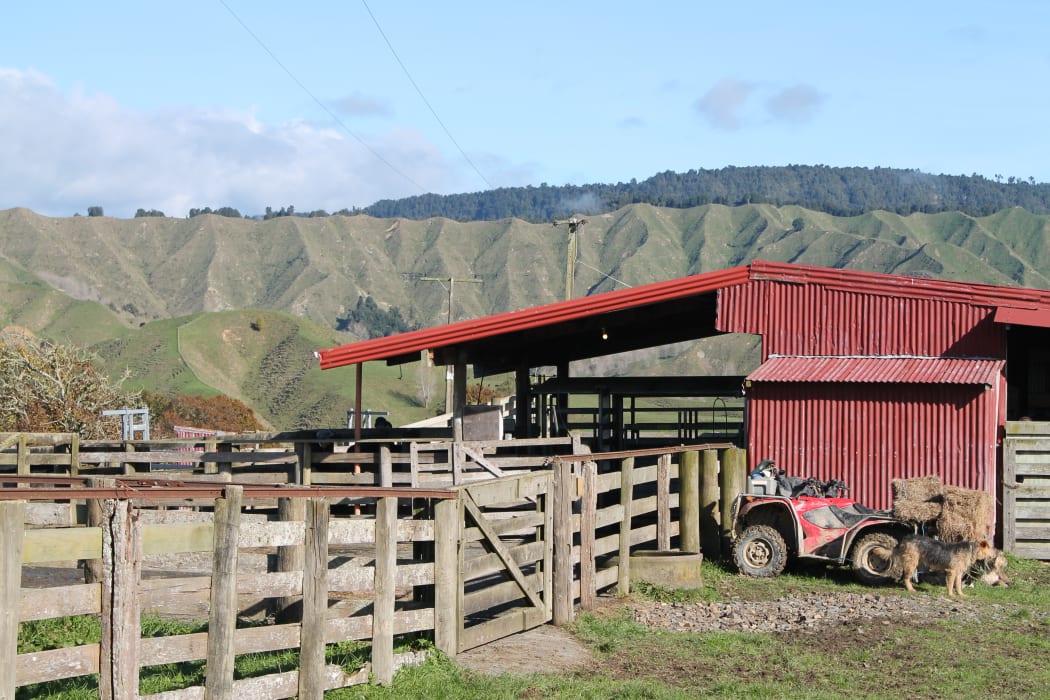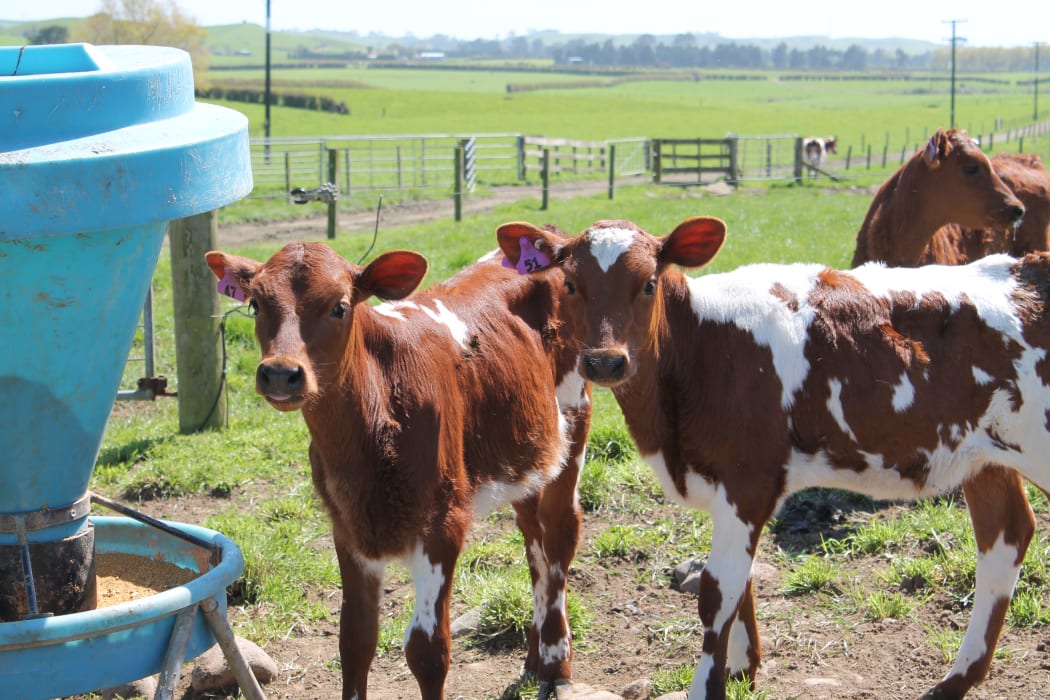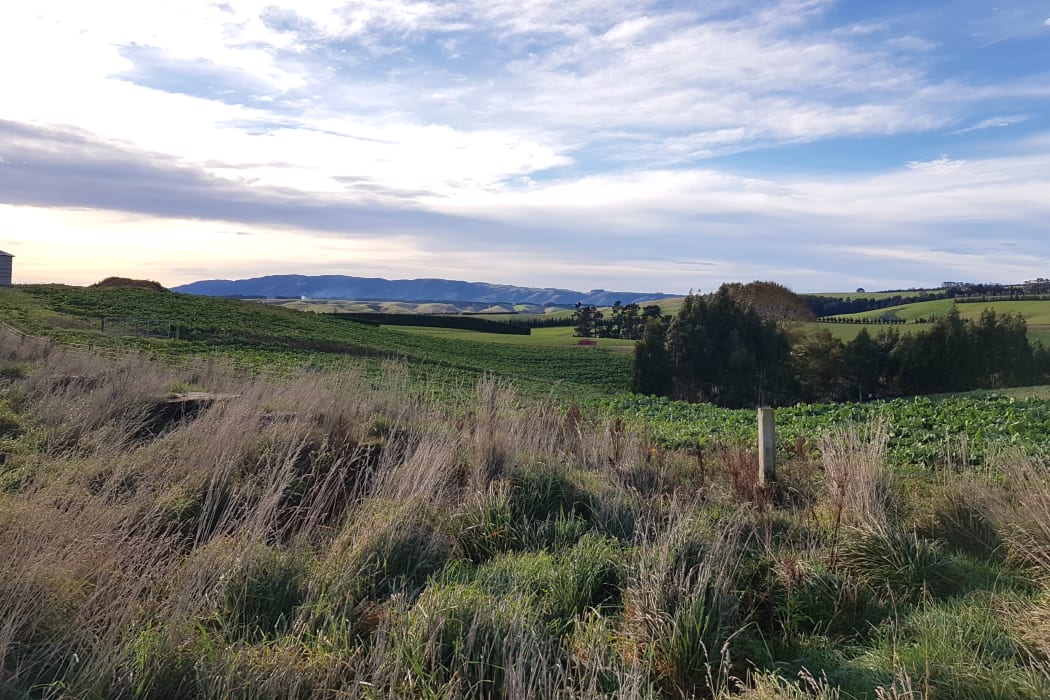
Photo: RNZ/Carol Stiles
Bay of Plenty farmers have had a kind winter, it is not too wet and they have very good pasture covers. It has been another stunning week in Canterbury with dry and mild conditions which have allowed some farmers to get onto paddocks and start preparing them for spring crops.
Northland's had a couple of brilliant sunny days and it's still extremely dry under foot despite rain at the weekend. Kaitaia had 50 millimetres of rain - its biggest fall this year. Conditions are generally superb for calving however the ground's so unusually firm that it's making farmers a bit worried about soil moisture levels heading into summer...
Around Pukekohe, conditions have been very changeable. Temperatures have risen, fog has turned up and there've been showers, sun and more rain. Growers of indoor tomatoes are struggling with over-production and very low prices - this comes at the time of year when their expenses are the highest. Outdoor crops of greens are in heavy supply too because of the mild winter so far. The situation is much better for onion growers who are still exporting their stored crops and are receiving good prices - although that's unlikely to be repeated this coming season.
Waikato has had a mix of fog, fog and more fog. There's been a little rain, mild temperatures and, with soil temperatures higher than usual for the time of year, good grass growth. Calving's off to its staggered start - the closer you get to Auckland the sooner calving kicks off - more southerly areas won't begin until closer to August.
Bay of Plenty farmers have had a kind winter, it's not too wet and they have very good pasture covers and still have good amounts of supplementary feed on hand. Calving should begin in earnest next week so many farmers have been enjoying a bit of a break before they're plunged into the busiest time of the year.
The King Country/Ruapehu area has had a bit of rain and unusually it hasn't been too cold. Grass is growing. People are scanning their ewes and the scanning rates aren't that great - that's being put down to the animals having a touch of facial eczema, along with poor quality feed at tupping. Cattle scanning results are ok - they're better at foraging for feed. The farmer we spoke to has heard of farms being purchased for forestry near Piopio and on the west coast near Kawhia. She works with Rural Support and says they're helping a few farmers liaise with banks. Quite a few farmers have been on interest-only loans for a long time and now banks are expecting them to pay back principle - and the farmers don't feel they're in a position to do that.
Taranaki has had mixed weather - a bit of rain and a bit of sun. The grass is still growing and cows are being well fed. Farms are well set up for calving.

Photo: RNZ/Carol Stiles
In Gisborne big swells have been holding up logging boats - they can't come in to port. Six have been just sitting there waiting for conditions to improve. There's not much room left to stockpile logs coming in on trucks. The region's been grateful for rain. Feed supplies are still quite good given it's winter. A bit of urea's going on to give lambing paddocks a boost. Some mandarins will have been left on trees because of an oversupply this year. Investment's going in to blueberries - with planting underway. Maori blocks are looking at potential crops - hemp's on the radar.
Some Wairarapa farms are looking for a bit of moisture - it's a bit dry and that's making farmers nervous about spring. The weather's been great for fencing though and getting jobs done before lambing and calving. There've been a couple of frosts and some disappointing ewe scanning results.
Horowhenua's had very mild weather and warm nights and some rain. Vegetables have been in good supply and have been very cheap but now, because of the rain, harvesting is a bit of a struggle. For pastoral farmers, soil seems to be running out of nitrogen - growth has been slowing despite the good conditions and grass looks a little yellow. Farmers are having to put nitrogen on three or four weeks earlier than usual. And speaking go of early, calving’s started one to two weeks earlier than expected on most farms - no-one's sure why.
In the Nelson/Motueka region apple and grape pruning's going full steam ahead and everyone's busy planting apple trees while the ground's firm. Our contact at Richmond is packing pears for the local market. He also grows peonies and says there’ve' been a couple of light frosts this week but the mild winter hasn't been ideal as they require 500 hours of below 5 degree temperatures to initiate flowering. He says it’s the same in orchards, with some apple trees needing 1500 hours below 5 degrees to make the buds want to open.
It's been mainly overcast with a few showers in Marlborough this week so survival rates for lambs that have come early should be good. Sheep are grazing behind wires and in vineyards, where pruning continues. The province could do with some more rain to build up soil moisture levels
A dairy farmer at Rununga on the West Coast says it's been the coldest it’s been for weeks but the grass is still growing well. There's a lot of grass for cows to eat. Some herds were drenched this week and, with calving not due to start until early August, some farmers are enjoying school holidays off-farm with the family.
It's been another stunning week in Canterbury with dry and mild conditions which have allowed some farmers to get onto paddocks and start preparing them for spring crops. The first calves have arrived on dairy farms with many farms milking a handful of cows already.

Photo: RNZ/Cosmo Kentish-Barnes
South Otago's already had half its usual winter rainfall. It's been mild too. With calving just around the corner, people are getting calf sheds ready and cleaning calf feeders. Most milking sheds are ready to go now that technicians have checked vacuum pressure, pulsation rates and have changed rubber-wear.
Apart from a few colds and flu, Southland farmers are getting through winter well. Ewes are being pregnancy scanned and, according to one farmer we spoke to, results are averaging about 160 percent. Some cows are on kale, fodder beet and chowmolia. A real cold snap's yet to hit the region and as a result, grass growth's been amazing.

